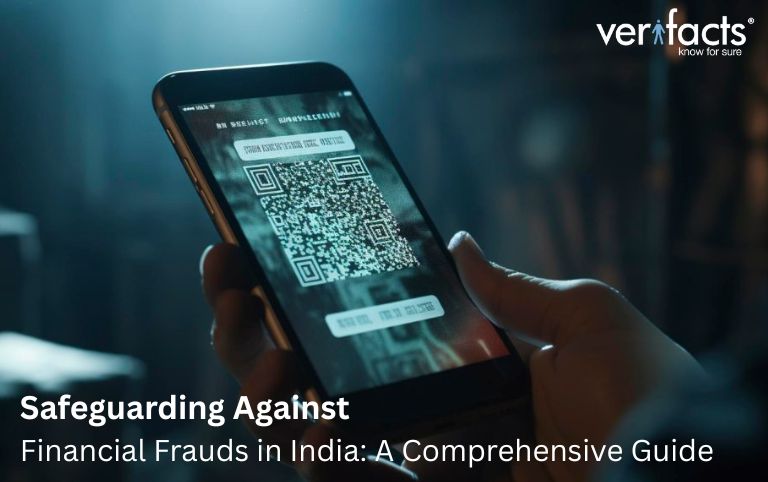
In the fiscal year 2023, bank frauds in India reached ₹302.5 billion, signaling a persistent threat to financial security. Although there was a slight decline compared to previous years, the rise in digital transactions has also fueled the growth of sophisticated scams. Fraudsters are continuously innovating, making it essential for consumers to stay informed and alert. Below is an in-depth look at the major fraud trends and how to protect yourself.
📈 The year 2023 witnessed an alarming surge in technology-driven financial scams. Fraudsters are using diverse methods such as UPI frauds, QR code scams, investment traps, and fake job offers to mislead individuals. These schemes often exploit trust, urgency, or lack of awareness. With India embracing a cashless economy, the risks of digital frauds are becoming more pronounced, requiring both consumer awareness and systemic safeguards.
📲 Unified Payments Interface (UPI) has transformed India’s payment ecosystem with convenience and speed. However, fraudsters are exploiting it by sending fake collect requests disguised as cashback or rewards. Victims, misled by the lure of easy money, end up authorizing fraudulent transfers. According to the Ministry of Finance, over 95,000 UPI fraud cases were reported in 2022–23, highlighting its scale. Consumers must verify every request before approving transactions to avoid falling victim.
💳 With the rapid adoption of online banking and cards, fraudsters are employing phishing emails, fake apps, SIM swaps, and identity theft to steal sensitive details. In 2023, Indian banks recorded 13,530 fraud cases related to online banking and card misuse. These scams not only cause financial losses but also damage consumer trust. Hence, adopting cyber hygiene practices like 2FA, strong passwords, and avoiding suspicious links is crucial.
🏦 While digital crimes dominate headlines, traditional frauds such as loan scams, cheque frauds, and unauthorized account operations remain active. Between June 2014 and March 2023, banks detected over 65,000 frauds. This shows that fraudsters continue to exploit both offline and online systems, making it vital for customers to monitor their accounts and verify any unusual activity.
🔍 QR codes have become a common tool for quick transactions. Unfortunately, scammers use fake QR codes to redirect payments into their accounts. Bengaluru reported that 41% of cybercrimes in the city were linked to QR code scams, making it one of the fastest-growing fraud categories. Consumers must remember: scanning a QR code is for sending money, not receiving it. Always cross-check before scanning.
💼 Fraudsters frequently target individuals with promises of unrealistic investment returns. In 2023, a massive Chinese investment fraud worth ₹712 crores was exposed in Hyderabad, leaving thousands of victims with heavy losses. Such scams thrive on greed and urgency. The golden rule is simple: If it sounds too good to be true, it probably is. Always verify investment platforms through SEBI or trusted financial institutions.
📢 Fraudsters are increasingly using social media platforms and job portals to trick people with offers of easy part-time work-from-home jobs. Victims are often asked to pay registration fees or complete bogus tasks. The Delhi Police reported a sharp spike in such cases in 2023. Young graduates and job seekers are particularly vulnerable, making it important to research employers thoroughly before engaging.
📦 Courier scams have emerged as a disturbing new trend. Fraudsters impersonate courier companies and claim parcels in victims’ names contain illegal or restricted items. They then demand money to “settle” the case. Bengaluru Police recorded 163 such scams in 2023. The best defense is to verify directly with the courier service and never share personal details over unsolicited calls.
🖥️ Cybercriminals are increasingly spreading malware disguised as apps, software, or fake tech support services. Once installed, the malware steals banking credentials and personal information. Reports indicate that 7 out of 10 consumers have faced some form of tech support scam. To counter this, users should avoid downloading apps from unverified sources, update devices regularly, and install antivirus protections.
✅ Stay Aware – Learn about the latest scam trends.
✅ Verify Identities – Don’t trust unknown callers, QR codes, or links.
✅ Secure Your Accounts – Use strong passwords and enable 2FA.
✅ Be Smart with Investments – Avoid offers of guaranteed or extremely high returns.
✅ Report Quickly – If scammed, contact your bank immediately, file a complaint on the National Cyber Crime Reporting Portal, and inform local police.
-
📞 Immediately inform your bank and block further transactions.
-
📝 File a complaint at the National Cyber Crime Portal.
-
👮 Report the case to your nearest police station.
-
🔍 Keep monitoring all linked bank accounts and cards.
-
📢 Escalate the case to regulatory bodies if necessary.
-
Frauds in India are evolving rapidly with the digital era. While banks and regulators are tightening systems, individual awareness is the first line of defense. Staying informed, cautious, and proactive can safeguard your hard-earned money. Remember, in the world of finance, prevention is always better than cure. Stay vigilant, stay secure, and spread awareness. 🚀

